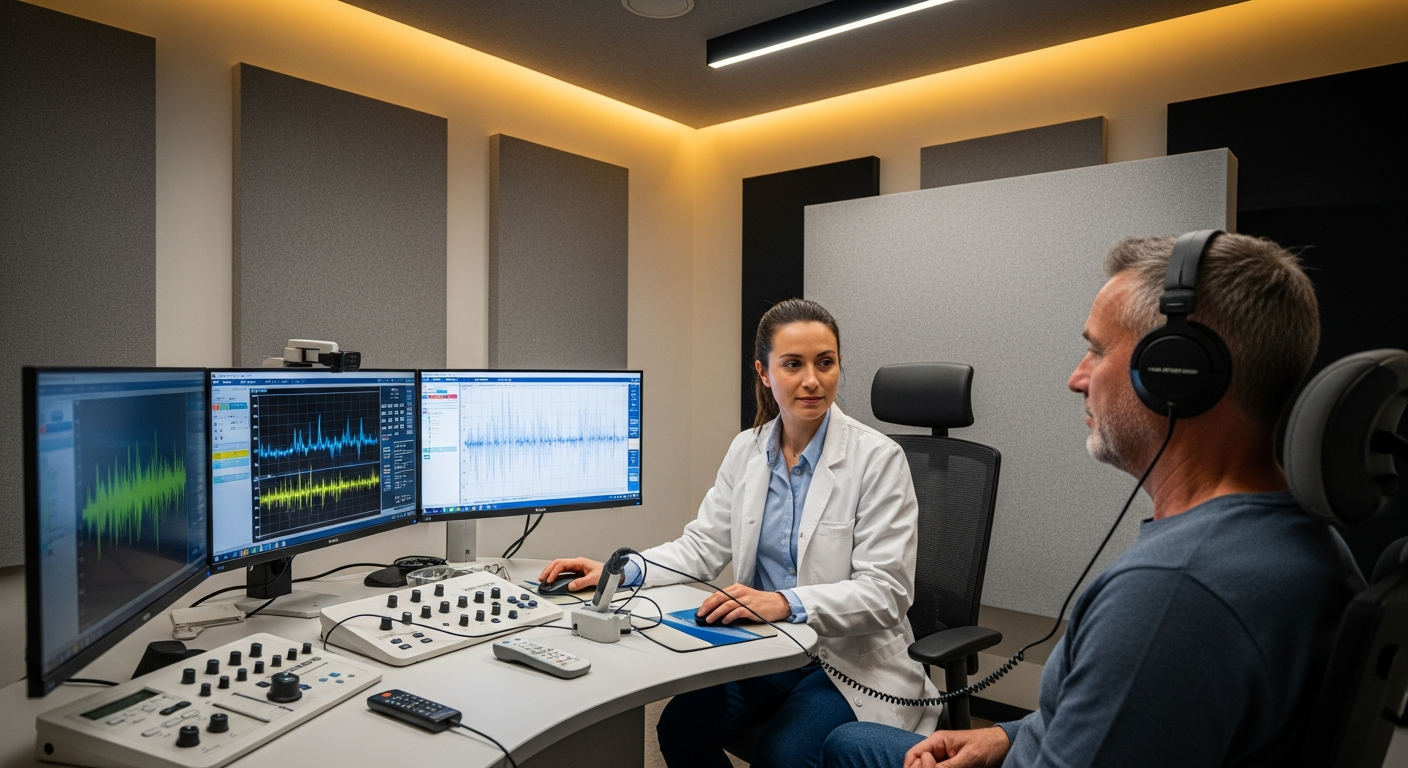Precision Nutrition for Autoimmune Disease
Interest in using diet to manage autoimmune disease has moved from the margins of self-help forums into mainstream clinical conversations. For decades, patients exchanged elimination strategies and miracle claims; today, clinicians and scientists seek to separate signal from noise by asking which foods, nutrients, and patterns truly modulate immune activity. Precision nutrition—the tailoring of dietary advice to an individual’s genetics, microbiome, metabolic profile, and lifestyle—promises more targeted, effective approaches than one-size-fits-all fad diets. Yet the path from hopeful theory to reliable therapy is complex: immune pathways are redundant and context-dependent, and the same food that soothes one person may inflame another. This article examines where the field has come from, what the evidence supports now, what’s novel and underexplored, and what practical strategies patients and clinicians can reasonably consider.

From early elimination diets to mechanistic thinking: historical context
Dietary attempts to influence chronic inflammation are not new. Nineteenth- and early twentieth-century physicians observed food-related symptom flares and recommended simple eliminations; in parallel, religious fasting traditions recognized dietary abstinence as a way to alter bodily balance. In the 20th century, interest resurfaced around specific nutrients—omega-3 fatty acids, vitamins, and antioxidants—seen as broadly anti-inflammatory. The 1980s and 1990s introduced more structured experimental elimination diets and the autoimmune paleo framework, but rigorous randomized trials were rare. The past two decades brought two parallel revolutions: high-throughput sequencing revealed the gut microbiome as a dynamic immunological organ, and affordable genomic testing enabled exploration of gene–diet interactions. These scientific advances reframed diet from an anecdotal afterthought to a potential lever for modifying immune set points, with the microbiome acting as both mediator and biomarker.
Biological mechanisms linking diet to autoimmune activity
Several plausible biological routes explain how diet can influence autoimmunity. First, the gut barrier modulates systemic immune exposure: increased intestinal permeability (“leaky gut”) may permit microbial antigens and food-derived proteins to interact with immune cells, potentially promoting autoantibody generation in susceptible individuals. Second, dietary substrates shape the microbiome, which in turn produces metabolites—short-chain fatty acids, bile acid derivatives, and tryptophan metabolites—that either promote regulatory immune pathways or favor inflammation. Third, specific nutrients directly influence immune cell function; for example, vitamin D modulates T-cell differentiation, and omega-3 fatty acids alter membrane lipid composition and eicosanoid signaling. Fourth, diet affects systemic metabolic state—insulin resistance, adiposity, and lipotoxicity are all tied to chronic low-grade inflammation and can exacerbate autoimmune processes. Lastly, timing of food intake interacts with circadian immune rhythms: meal timing can shift peripheral clocks and influence inflammatory gene expression. Together, these mechanisms suggest that effective dietary interventions must consider more than macronutrient counts; they must address the food matrix, microbial outcomes, and timing.
Current trends, impact, and how clinicians and patients are responding
The last five years have seen explosive growth in interest, tools, and commercial offerings around personalized nutrition for autoimmune disease. Clinicians increasingly recommend baseline screening for vitamin D, iron, and celiac disease, and many use structured elimination diets—such as the autoimmune protocol (AIP), low-FODMAP strategies for gut-dominant autoimmune conditions, or gluten-free approaches for serology-positive celiac disease—with careful reintroduction phases. On the consumer side, companies offer microbiome sequencing, nutrigenetic reports, and algorithm-driven meal plans promising immune benefits. The impact is mixed. Some patients report meaningful symptom improvement and reduced medication use after targeted dietary changes; examples include clearer remission in some inflammatory bowel disease patients following specific food exclusions, or improved joint pain control with increased omega-3 intake. On the other hand, the evidence base is uneven: many popular approaches rely on open-label trials, small cohorts, or mechanistic plausibility rather than large, placebo-controlled studies. Medical professionals express cautious interest—recognizing that diet can be an important adjunct—but also frustration with overhyped commercial claims and the potential for nutritional deficiencies when diets are overly restrictive without professional supervision.
Underexplored insights and nuances beyond popular narratives
Several subtle, understudied aspects of nutrition and autoimmunity deserve attention. First, food processing and additives matter: emulsifiers and certain advanced glycation products found in ultra-processed foods can alter the microbiome and promote low-level inflammation in animal models. This suggests that advising whole-food patterns, rather than isolating single nutrients, is critical. Second, the food matrix—the way nutrients are embedded in whole foods—modulates absorption and immune response; fermented foods, for example, introduce live microbes and bioactive peptides that may exert benefits independent of their macronutrient profile. Third, antigenic load and oral tolerance are dynamic: regular exposure to diverse, minimally processed plant foods appears to support regulatory immune pathways, whereas abrupt elimination and prolonged avoidance can shift immune reactivity in unpredictable ways. Fourth, circadian alignment and meal timing are rarely discussed in patient education but can influence immune cell trafficking and cytokine rhythms; for some patients, concentrating calories earlier in the day and avoiding late-night eating reduces inflammatory markers. Fifth, psychological factors—stress, sleep, and social eating patterns—interact with diet to shape outcomes; nutrition should be integrated with behavioral and psychosocial support rather than offered as an isolated cure.
Practical, evidence-informed strategies for clinicians and patients
A pragmatic approach balances personalization with safety. Start with targeted screening: check for celiac disease in compatible symptoms, vitamin D and B12 levels, iron status, and thyroid autoimmunity where relevant. Use structured, time-limited elimination diets when clear food triggers exist—guided reintroduction is essential to avoid unnecessary lifelong restriction. Prioritize dietary patterns associated with anti-inflammatory profiles in observational and mechanistic research: Mediterranean-style diets rich in oily fish, legumes, nuts, whole grains, fruits, vegetables, and olive oil show consistent associations with reduced systemic inflammation and better cardiometabolic health, a major consideration given comorbidity burdens in autoimmune populations. Encourage fermented foods and dietary fiber to support microbial diversity, while being mindful that some patients with small intestinal bacterial overgrowth or FODMAP sensitivity may require tailored plans. Supplement prudently: vitamin D repletion in deficient individuals, omega-3 supplementation where dietary intake is low, and targeted micronutrient correction when labs indicate deficiency. Monitor for unintended consequences—weight loss, nutrient deficiencies, or social isolation from overly restrictive eating—and involve dietitians skilled in autoimmune care. Finally, embrace measurable outcomes: symptom scores, validated quality-of-life measures, inflammatory biomarkers when indicated, and patient-centered goals should guide iterative adjustments.
Controversies, limitations, and prudent future directions
The field grapples with several unresolved controversies. The roles of lectins and phytochemicals, often vilified in popular media, are complex—while certain lectins can provoke GI symptoms in sensitive individuals, whole-plant foods provide myriad protective compounds and fiber that generally support resilience. Similarly, wholesale demonization of gluten outside of celiac disease lacks robust evidence. The biggest limitation is heterogeneity: autoimmune diseases differ in tissue targets and immune drivers, and even within a disease, genetic and microbial contexts vary widely. Large, well-controlled trials that combine dietary interventions with mechanistic endpoints—microbiome shifts, metabolomics, and immune phenotyping—are sparse but necessary. Promising future directions include multi-omic profiling to identify responders, adaptive trial designs that test personalized algorithms, and integration of continuous physiological monitoring (glucometers, wearable inflammation proxies) to capture real-world responses. Equity must also be central: personalized nutrition risks becoming available only to those who can pay for testing and coaching, so scalable models that adapt evidence-based elements to diverse populations are vital.
A measured vision: integrating precision nutrition into comprehensive care
Nutrition will not replace immunomodulatory medications for most people with autoimmune disease, but it can be a powerful lever to augment treatment, reduce side effects, and improve quality of life when applied thoughtfully. The most productive stance for clinicians and patients is neither unconditional skepticism nor unquestioning enthusiasm, but careful experimentation grounded in biology, measurable outcomes, and patient values. As multi-omic tools mature and clinical trials refine which dietary signals matter, the promise of precision nutrition is evolving from hopeful speculation to actionable care pathways. In the meantime, focusing on whole-food patterns, correcting deficiencies, supporting the microbiome, and avoiding unnecessarily restrictive diets will deliver the best balance of safety, feasibility, and potential benefit.




